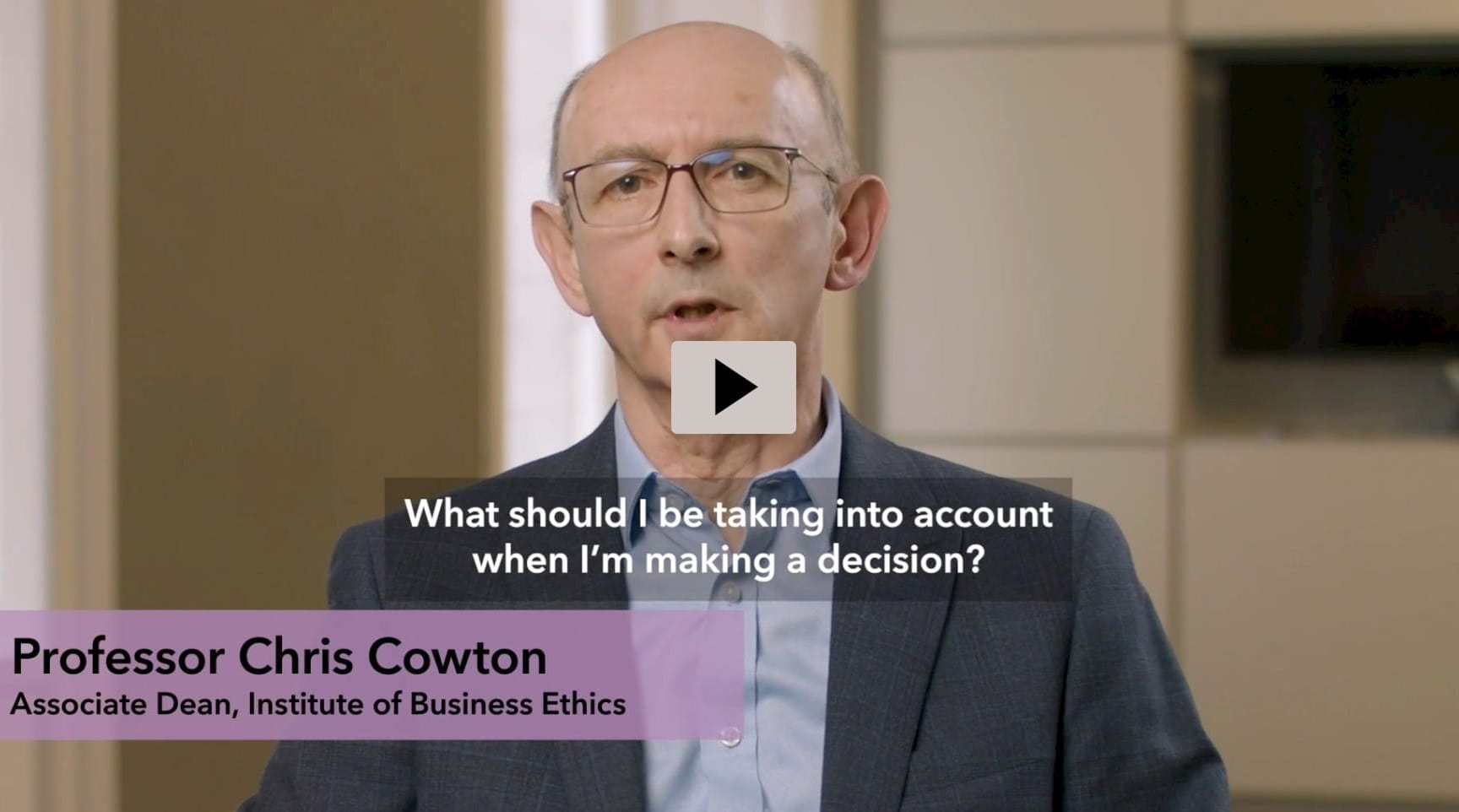Recent unfavourable headlines about ethics in accountancy highlight an urgent need to boost governance in the profession and beyond. That’s the stark message of a new strategic work plan from the International Ethics Standards Board for Accountants (IESBA).
Published on 11 April, Towards a More Sustainable Future: Advancing the Centrality of Ethics is built around an ambitious aim: to enshrine the International Code of Ethics for Professional Accountants at the heart of corporate decision-making.
The four-year plan will pursue that goal via two, high-priority focus areas:
Accounting firm culture and governance
The IESBA will seek to identify potential actions it may take, within or outside the Code, to respond to “persistent, high-profile” cases of unethical behaviour in accounting firms.
Broadening the reach of the Code
The body will explore the potential for extending the Code’s impact beyond the profession to cover “a wider array of individuals who perform similar work” to professional accountants, such as preparers of sustainability information.
‘Determined response’
In a foreword, IESBA Chair Gabriela Figueiredo Dias says that success depends on the body’s ability to navigate the ever-evolving external environment, to leverage emerging opportunities and to anticipate and address new potential challenges. “To achieve our goals, we must demonstrate the agility, courage and humility to adjust our plans as much as needed.”
Turning to the plan’s focus on firm culture and governance, Dias says the IESBA is providing “a determined response to the recurring ethical lapses in the space of accounting and audit, including some recent high-profile cases of unethical behaviour by professional accountants in public practice.” Those cases have had “devastating impacts” on public trust and confidence in accounting firms and the profession as a whole.
“This new strategic focus is also consistent with our vision for the IESBA to affirm its leadership role in promoting ethics and good culture and governance,” Dias says.
“Putting ethics at the centre of every business judgement and decision is the surest way to earn, restore and strengthen public trust in all that an organisation does. The external landscape continues to evolve, presenting new dynamics and challenges, but good ethical behaviour acts as a constant amid the uncertainty. It is about integrity, expected behaviours and mindset, and making the right decision.”
Highest standards
Additional features of the work plan include:
- New initiatives to explore ethical questions around the evolving role of CFOs and other, senior professional accountants in business – plus independence considerations relating to business relationships between firms and their audit clients.
- A commitment to carry out a set of post-implementation reviews for the most significant ethics standards the IESBA has issued in recent years, such as in the field of independence.
- Ongoing monitoring of technological transformations and their impact on professional services performed by accountants and others – to determine the need for further standard-setting, or other actions the IESBA may take in the public interest.
- A commitment for the IESBA to maintain close ties with its sister body – the International Auditing and Assurance Standards Board – and to foster collaborative relationships with other standard-setters to ensure interoperability.
Dias says the plan “reflects the IESBA’s unwavering determination to face the external environment head on, broaden the reach and scope of our work, and set the highest standards of ethical conduct for professional accountants and others who play a role, large or small, in the financial and non-financial information supply chain.”
“That is how our work, vision and ambition support the proper functioning and sustainability of organisations, financial markets and economies worldwide in the public interest.”
David Gomez, ICAEW’s Senior Lead, Ethics, says: “We welcome the IESBA’s new initiatives to explore ethical considerations around the evolving role of CFOs, along with other senior professional accountants in business.
“Increasingly, the CFO is being seen as the conscience of the company – and Part 2 of the Code puts an onus on all accountants to encourage and promote an ethics-based culture in their organisations.”
That includes the introduction, implementation and oversight of ethics-focused education and training programmes, plus ethics and whistleblowing policies – as well as policies and procedures designed to prevent non-compliance with laws and regulations, Gomez adds.
However, he warns that it is not always appreciated that such provisions apply to professional firms when considered as businesses, too.
“Some firms have implemented an ‘ethics by design’ approach. Broadly, that involves obtaining a thorough understanding of your organisation’s core values, processes and activities, identifying where ethical ‘pinch points’ are and where dilemmas are potentially likely to arise – and putting in place checks and procedures for how your employees should handle those issues when they occur.”
“The key takeaway here is that all accountants have a part to play in promoting an ethical culture, wherever they work,” Gomez adds.
For further information on this topic, explore ICAEW’s Trust and Ethics resources.
Ethics CPD course
This free course helps you apply the Code of Ethics to everyday situations and satisfy your CPD requirements.




